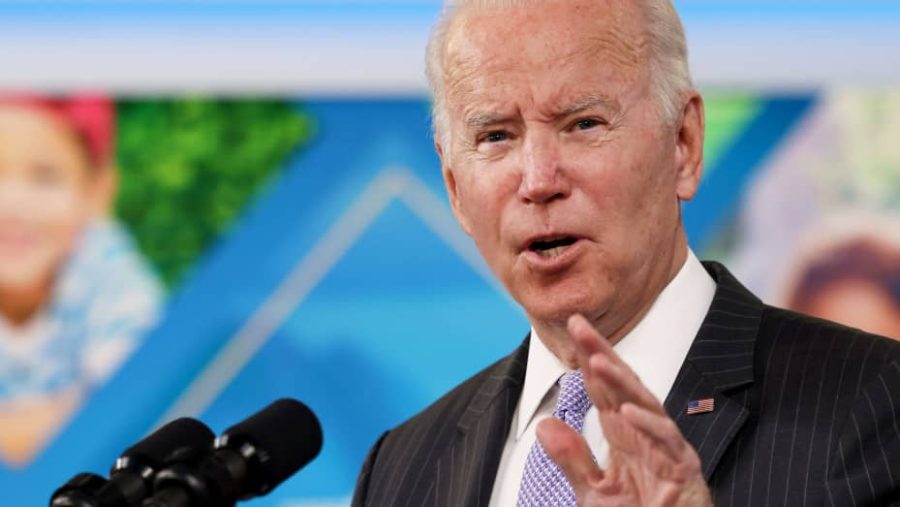Dark Money is Obstructing Progressive Wins in Congress- But We Can Do Something About it
Photo courtesy CNBC
When Joe Biden was sworn as the 46th president earlier this year, he promised to pass the most sweeping social safety legislation since FDR’s New Deal. After providing millions of Americans with much-needed Covid-19 relief through the American Rescue Plan, Biden proposed a 3.5 trillion dollar Build Back Better plan in October to combat Climate Change, support working families, and expand medicare. However, after almost two months of negotiating, the bill has now been reduced to 1.85 trillion dollars in spending, with many policies such as free community college cut from the final bill. Since Democrats hold narrow majorities in both the House and Senate, most of these reductions have been due to pushback from the two most conservative Democrats in the Senate, Joe Manchin and Kyrsten Sinema. Since their votes are essential for passing the bill, both senators have been the successful targets of political lobbying groups. The dark money donated by these groups is hindering legislative progress and furthering the American people’s lack of faith in our government, particularly in the Senate.
“Dark money” is defined as funds raised for the purpose of influencing elections by nonprofit organizations. These nonprofit organizations are not required to disclose the identities of their donors. These organizations include 501(c)s and PACs, and have spent over 1 billion dollars on politics in the past decade. Joe Manchin has received over one million dollars in total from these organizations according to OpenSecrets, a group that tracks dark money in politics. Specifically, 80% of these donations have come from the coal and oil industries. These donations then resulted in Manchin striking down the provision in Biden’s bill that would have halted the construction of new coal plants. His provision is key to Biden’s emissions goals and won’t be included in the final bill due to Manchin’s financial ties with these industries.
Kyrsten Sinema’s dark money funds are even higher, with over 2.5 million dollars in donations from lobbying groups since 2017. Sinema has been the main target for donations from multilevel marketing businesses, companies that incentivize their customers to sell products through pyramid schemes. The recent surge in donations has likely influenced Sinema’s decision to remain opposed to the PRO act as she is the only Democratic senator to do so. The PRO act would restore the right of workers to form unions and bargain for changes in the workplace. This would be detrimental to MLM businesses since the provision bill would make it difficult to classify workers as independent contractors, their main labor sources. When Sinema first ran for the House of Representatives in 2002, she affiliated with the Green Party and supported many progressive policies such as public healthcare and tax increases on the rich. However, today she has made headlines by cutting many important policies from the Build Back Better plan, and deposited thousands of dollars in her pocket by doing so.
While dark money may seem like a problem that can’t be addressed through mere legislation, there are many legal loopholes that allow this practice to continue. In 2010, the supreme court case Citizens United v FEC struck down a law that banned corporations from donating in elections, allowing dark money to pour into politicians’ pockets unchecked. Even without taking the case back to the Supreme Court, there are many ways this practice can be stopped. In 2016, a California proposition passed a referendum that advised lawmakers to overturn the decision with a constitutional amendment, and earlier this year, Democrats in the house proposed a bill that would do just that. While Republicans continue to filibuster any attempts to reform this practice, dark money still has a major influence on politicians from both parties. This practice takes the power away from the people who elected them and places it squarely into the hands of corporate donors who will stop at nothing to maintain the status quo.

Grade: 12
Years on Staff: 4
Why are you writing for the Flintridge Press?
Writing crosswords allows me to express creativity through the clues...







